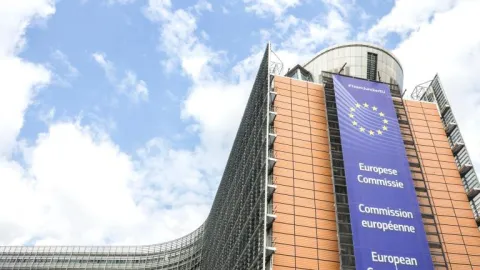First Sanction Under Article 102 TFEU for Predatory Acquisitions by the French Competition Authority
November 21, 2025
In this decision, the French Competition Authority (“FCA”) fined Doctolib, an online platform acting as in intermediary between health care professionals and clients, €4,665,000 for abusing its dominant position in the online medical appointment booking and remote medical consultation solutions sectors (FCA Press release, Nov. 6, 2025). As the decision is not yet published, we can still find a particular interest in this press release, as the ruling applies the Towercast solution (ECJ, Towercast, 16 March 2023, C‑449/21) for the first time in French competition law, as well as some consistent rules regarding tying and exclusivity clauses.
Indeed, both remote consultation and online medical appointment have been increasingly used these past few years, and especially since the health crisis as “the French government entrusted certain online medical appointment booking platforms (…) with the management of online appointments during the Covid-19 vaccination campaign in 2021” (FCA Press release, Nov. 6, 2025), including the company Doctolib, developer of the online platform “www.doctolib.fr”.
The undertaking’s market share has thus increased accordingly, being “consistently above 50% between 2017 and 2022, and in some years [exceeding] 90%” (FCA Press release, Nov. 6, 2025) in the market for online medical appointment booking services in which Doctolib has had a dominant position since 2017. Even though the market share is a bit lower in the market for remote consultation technology solutions, as it exceeds 40%, in “the absence of countervailing purchasing power” and in the presence of significant barriers to entry such as the presence of network effects, Doctolib’s dominant position in this market has been characterized as from 2019 by the FCA (FCA Press release, Nov. 6, 2025).
Even though the dominant position is not prohibited per se, in the case at hand, following a complaint lodged by a rival company Cegedim Santé and a dawn raid conducted in 2021, the FCA sanctioned Doctolib for different types of abuses, leading to the infringement of article 102 of the Treaty on the Functioning of the European Union (“TFEU”) and article L. 420-2 of the French Commercial Code, the French prohibition of abuse of dominance.
The FCA has concluded that Doctolib committed exploitative abuse in the markets for online medical appointment booking services (the Doctolib Patient service) and dedicated technological solutions enabling medical teleconsultations (the Doctolib Téléconsultation service), which purpose was twofold:
Firstly, the company compelled its subscribers to solely use its services through exclusivity clauses inserted in subscription contracts. It was combined with the tying of the two services (Doctolib Patient and Doctolib Téléconsultation), as it was mandated to pre-subscribe to Doctolib Patient to be able to use Doctolib Téléconsultation, and thus be able to offer remote consultation service for health care professionals (FCA Press release, Nov. 6, 2025).
Secondly, the company proceeded in July 2018 with an acquisition whose sole purpose was to eliminate its main competitor, namely “MonDocteur” – “described in internal documents as ‘competitor #1’” (FCA Press release, Nov. 6, 2025). This operation did not meet the national thresholds laid out by article L. 430-2 of the French commercial code and was thus not examined under merger control. However, it was considered anticompetitive as it entrenched Doctolib’s dominant position in the online medical appointment booking services market.
The FCA is thus sanctioning an acquisition for the first time based on Article 102 TFEU and Article L. 420-2 of the French Commercial Code. The significance of this decision is profound. Indeed, this ruling imposes a sanction in the context of predatory acquisition, since these operations took place below the national notification thresholds and, de facto, were therefore not subject to ex ante review. However, even if it is a first and unseen sanction, the FCA proceeds with caution (II) as the fine regarding this practice consists only of €50,000, the main abuse consisting of known practices, exclusivity clauses and tying, which were combined in this case (I).
A combined abuse of exclusivity clauses and tying
Exclusivity clauses in the context of abuse of a dominant position are certainly a practice well-known to competition Authorities and « have traditionally been cited as examples of abuse since the Hoffman-La Roche judgment » (ECJ, Hoffman-La Roche, 13 Feb. 1979, 85/76, in this sense: L. IDOT, "Concurrence - Abus de position dominante et clauses d'exclusivité", Europe, n° 3, March 2023, comm. 105) notably in the digital sector, which has been subject to sanctions such as in the Google AdSense case (EC, 20 March 2019, Google AdSense, case 40411; Press Release), even though for now this decision has been annulled as the European Commission lacked a sufficient analysis of all the relevant circumstances and has not proven that “the exclusivity clause in GSAs concluded with all sites direct partners, the placement clause and the prior authorisation clause constituted, together, a single and continuous infringement of Article 102 TFEU” (EGC, Google AdSense, 18 Sept. 2024, T-334/19; para. 1004).
This decision, however, should not follow the same path – even though Doctolib has already announced it will file an appeal against the decision (Doctolib Press release, 6 Nov. 2025). As a matter of fact, the exclusivity clause implemented by Doctolib prohibited or dissuaded healthcare professionals from using medical appointment booking services or teleconsultation solutions that competed with those of Doctolib, by threatening them with suspension or termination of the contract combining it with an “anti-allocation” clause. Furthermore, Doctolib deliberately maintained these clauses in its contracts despite warnings from the legal department regarding their anti-competitive nature and cautionary advice to delete these clauses (FCA Press release, Nov. 6, 2025). This is an exclusionary abuse well-known in competition law (ECJ, Unilever, 19 Jan. 2023, C-680/20; Paris Court of Appeal, 18 Sept. 2001, 2001/03769, in which it is said that “the purpose of the disputed clause was necessarily to dissuade florists belonging to its network from joining other networks, thereby preventing or restricting competition in this market”), which reasoning can easily be transposed to digital platforms and their contracts with their business partners.
Moreover, the matter does not end here, as the practice of tying is added to the exclusivity clauses. This practice is already known, particularly in the digital sector, having been the subject of known cases, some of which are still highly relevant (EC, Microsoft, 16 Dec. 2009, COMP/39.530; Press release; EC, Google Android, 18 July 2018, AT.40099; Press release). Such is the case, for instance, with the recent Microsoft Teams case regarding the tying of digital applications (EC, Microsoft Teams, 12 Sept. 2025, AT.40721 and AT.40873; Press release), in which “the Commission considered that this tying practice restricted competition in the cloud communication and collaboration tools market, conferring an undue distribution advantage on Teams, which was exacerbated by interoperability limitations with competing software” (D. BOSCO, "Abus de position dominante - Microsoft s'engage à "découpler" Teams de sa suite bureautique", Contrats Concurrence Consommation, n° 11, Nov. 2025, comm. 153). In the Doctolib case, in addition to the presence of exclusivity clauses in the subscription contracts, practitioners were also mandated to subscribe to Doctolib Patient to be able to use Doctolib Téléconsultation (the remote medical consultation service), paying for both services cumulatively. On the other side of the market, consumers were forced to first install Doctolib Patient, if they wanted to be able to use the remote medical consultation service (FCA Press release, Nov. 6, 2025), reinvigorating network effects since health care professionals are attracted – and are thus more inclined to pay for both services – by the platform which gathers the largest number of consumers, and vice versa.
Thus, in the digital sector, the combination of exclusivity clauses and tying is hardly surprising as abusive practices are multiplying, while adapting to their environment. Seeking to obtain a dominant position in an emerging market, Doctolib locked in its dominant position by leveraging both its reputational effect and the aforementioned combinations for which the FCA sanctioned Doctolib with a fine of €4,615,000 euros.
However, the contribution of the judgment does not lie in these practices, which are well-known to the authorities, but in the predatory acquisitions that were sanctioned for the first time under Article 102 TFEU, even if only for a fine of €50,000.
An unseen but cautions sanction based on Towercast
As a reminder, the Paris Court of Appeal requested a preliminary ruling in the Towercast case on the interpretation of Article 21(1) of Council Regulation (EC) No 139/2004 of 20 January 2004, on July 1st, 2021 (Paris Court of Appeal, Towercast, 1 July 2021, RG 20/04300). An appeal had previously been filed by the company Towercast against a decision of the FCA (FCA, Dec. 20-D-01, 16 Jan. 2020) ruling that the successive acquisitions of main competitors by the TDF group in the digital terrestrial television broadcasting sector did not infringe article L. 420-2 of the French commercial code and article 102 TFEU. Its reasoning was that “a merger cannot, in itself, constitute an abuse of a dominant position under Article 102 TFEU and Article L. 420-2 of the Commercial Code” since the prohibition requires an abuse that is separable from the merger (FCA, Dec. 20-D-01, 16 Jan. 2020; para. 160).
Hence, the request for a preliminary ruling, asking the ECJ if a concentration below “thresholds for mandatory ex ante assessment laid down in national law, and [that] has not been referred to the European Commission under Article 22 of [Regulation No 139/2004]” can constitute an abuse of a dominant position (ECJ, Towercast, 16 March 2023, C‑449/21; para. 29). The Court responded positively to this question, stating that “Article 21(1) of Regulation No 139/2004 must be interpreted as not precluding the competition authority of a Member State from regarding a concentration of undertakings which has no Community dimension within the meaning of Article 1 thereof, is below the thresholds for mandatory ex ante control laid down in national law, and has not been referred to the Commission under Article 22 of that regulation, as constituting an abuse of a dominant position prohibited under Article 102 TFEU, in the light of the structure of competition on a market which is national in scope” (ECJ, Towercast, 16 March 2023, C‑449/21; para. 53; which was confirmed by: ECJ, Illumina/Grail, 3 Sept. 2024, C‑611/22 P & C‑625/22 P; para. 214).
Furthermore, the Court laid down the conditions under which a concentration below the thresholds is likely to be classified as an abuse of a dominant position, at paragraph 52. On the one hand, the dominant position of the acquirer must be established prior to the transaction. On the other hand, the mere strengthening of that position is not sufficient for the finding of abuse. It must be established that there is a “degree of dominance [...which] would substantially impede competition,” i.e., that “only undertakings whose behaviour depends on the dominant undertaking would remain in the market” (ECJ, Towercast, 16 March 2023, C‑449/21; para. 52).
However, the Paris Court of Appeal ruling has not applied these conditions. Indeed, as the FCA decision (FCA, Dec. 20-D-01, 16 Jan. 2020) took an opposite position, it was simply annulled in the subsequent judgment (Paris Court of Appeal, Towercast, 27 June 2024, RG 20/04300) which referred the case back to the FCA for further investigation. The FCA is now assessing developments of the market and competition in the digital terrestrial television broadcasting sector, considering the Towercast ruling, and as the investigation is currently ongoing, we are for now waiting for another decision.
In the meantime, the FCA, for the first time, examined mergers below national notification thresholds, in a cartel case in the meat-cutting sector. Nevertheless, this case was dismissed as, notably, “the merger agreements did not have an anticompetitive purpose” and there was no “overall geographic market allocation plan insofar as the exchanges between the parties took place solely as part of preparatory discussions for the mergers” (FCA Press release, 15 May 2024).
Hence, the Doctolib case might not be the first examination of mergers below national notification thresholds, but it is an unseen sanction, with a textual application of the conditions set out in paragraph 52 of the Towercast ruling. Indeed, Doctolib was already in a dominant position prior to the acquisition in July 2018 – the dominant position having been established as from 2017 (FCA Press release, Nov. 6, 2025). The undertaking acquired a direct, and serious competitor, “MonDocteur” described as its main competitor in internal documents. This operation significantly strengthened Doctolib’s dominant position in the market for medical appointment booking services, with the arrival of 10,000 new health care professionals on their platform and market share sometimes rising from 50% to 90% between 2017 and 2022 (FCA Press release, Nov. 6, 2025). Above all, the acquisition was in no way intended to develop the competitor’s product. It was simply done with the aim of “killing” their “N°1” competition, as stated by internal documents (FCA Press release, Nov. 6, 2025) and made it possible for Doctolib to increase prices without losing any clients, nor business partners. As stated by the FCA Press release, while awaiting the final decision: “Doctolib saw the acquisition as a means of “reducing pricing pressure” and a lever for “increasing its prices by 10 to 20%”. Indeed, Doctolib increased its prices several times following the transaction. The Autorité found the increases were higher than initially planned (by an additional 3 percentage points), without any loss of customers or slowdown in the company’s growth, despite competing platforms charging lower prices” (FCA Press release, Nov. 6, 2025). Doctolib’s independence of behaviour and user dependence, strengthened by an acquisition under national concentration thresholds, thus substantially hinders competition on the market for medical appointment booking services, constituting an abuse of a dominant position.
Despite this remarkable first application, it must be said that the FCA proceeded with caution, as this abuse was only sanctioned by a very small fine, €50,000. As the sanction needs to be strictly necessary and proportionate, and as Doctolib has already stated his intent to file an appeal (Doctolib Press release, 6 Nov. 2025), it will thus be very interesting to follow the reasoning of the Paris Court of Appeal in this case in the future, as well as the final FCA decision in the Towercast case. Those two pending cases will probably shape the future of the Towercast ruling in French competition law, either affirming it strongly, or making it meaningless. This latter path does not seem, however, the one chosen by the FCA and the Paris Court of Appeal these past few years, and it would be very surprising of them to go one step back, instead of one step further.
You may also like








